
Both the World Health Organization and the American Academy of Pediatrics recommend exclusive breastfeeding for six months. This means no foods other then breast milk for the first half year of your baby's life, or formula if you are a formula feeder. The reason for this recommendation is the baby's gut maturity. Generally, your baby is biologically ready for solid foods. According to a recently published study (new study warns against early solids for babies) babies who start solids too early in life have a high chance of becoming obese later on. Early solids are also associated with a higher likelihood of food allergies.
Up until quite recently, the "classic approach" to solids in the United States was giving babies rice cereal in their bottle as early as four months. This may still be recommended by some doctors today, but you have every reason to avoid it. Six months is generally the time your baby is ready for the first solid foods. Signs of readiness include your baby being able to sit up alone, having a "pincher grasp" that allows her to pick up foods, and having lost the reflex that makes the tongue push solid foods out of the mouth. An interest in eating solid foods can also be added to the list. Don't fret if your baby doesn't take to solids right away it will come with time. Have fun!
- www.cdc.gov/nutrition/infantandtoddlernutrition/foods-and-drinks/when-to-introduce-solid-foods.html
- www.nhs.uk/conditions/pregnancy-and-baby/solid-foods-weaning/
- Photo courtesy of Valentina Yachichurova by Flickr: www.flickr.com/photos/48090400@N05/14756378972/


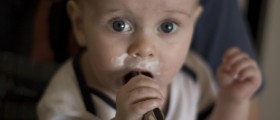
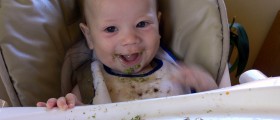

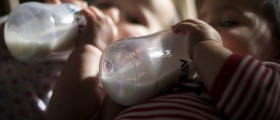






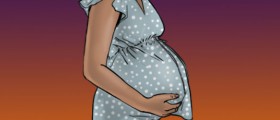


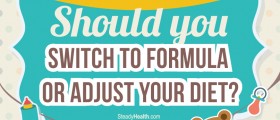

Your thoughts on this
Loading...